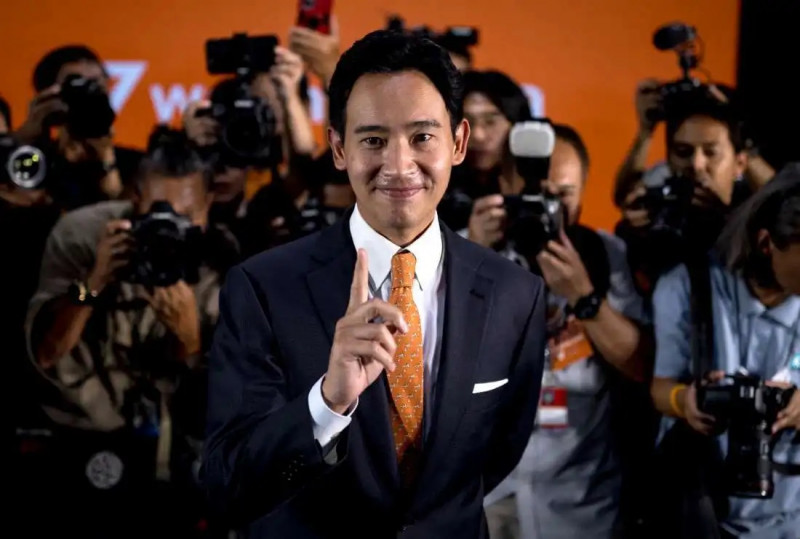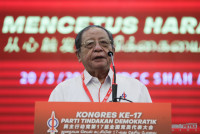WHENEVER the word “democracy” crops up one’s mind will automatically be directed to this eye-catching word i.e “people”. People and democracy are two sides of the same coin.
The oft-quoted statement by Abraham Lincoln in defining democracy as “government of the people, by the people, of the people” could be fairly said to represent the true, real and genuine ethos of democracy.
Etymologically speaking, the word democracy itself is derived from the Greek words “demos”, meaning people, and “kratos”, meaning power. Taking cue from such an etymology, the late Kofi Annan once said that “democracy can be thought of as ‘power of the people’: a way of governing which depends on the will of the people.”
In essence, democracy entails an absolute respect of the will of the people. In modern times, such a will is often solicited by way of a periodic election. In ensuring that the will of the people is absolutely real and devoid of any adulterated and undue influences, a free and fair election plays a key role in solidifying the people’s mandate.
A government might be communist but legitimate. And the government might be capitalist yet illegitimate. Ergo, the will of the people sensu stricto defines the DNA of such a government!
Any form of the seizure of power through any undemocratic means equals a total disrespect of vox populi. Consequently, any government which is formed via such an undemocratic means would be considered to be an illegitimate government as far as democracy is concerned.
Is mandate betrayal a norm in Asean?
On May 9, 2018, Malaysians duly exercised their constitutional and democratic rights through the ballot box by installing a new government to represent them in the federal government. Such a stunning victory of Pakatan Harapan (“alliance of hope”) was essentially a triumph of democracy in Malaysia.
The will of the people reigned supreme. To the chagrin of many, the lifespan of such unprecedented victory of democracy was, unfortunately, very short.
Despite the fact the Malaysian constitution endorses any government which is formed via a general election to rule and govern for a period of five years, such a mandated government only managed to be in power for almost two years only.
Political defections or party-hopping completely crushed and vanished the mandated government to pieces. Be that as it may, democracy in Malaysia reverted to its original decadence.
It seems that now we are witnessing history repeat itself, yet once again. Another Asean country is now being embroiled in another mandate betrayal, thus putting democracy down the drain!
The political impasse in Thailand begs this question: is mandate betrayal sine qua non of “Asean Ways”?
In Thailand, Pita Limjaroenrat’s progressive Move Forward party, which campaigned on a promise of change after nine years of rule by a former army chief, secured the most votes in the general election yet his party was denied the chance of representing the people of Thailand. Democracy is completely and happily ignored.
Under the present constitutional system currently enforced in Thailand, the Move Forward party needed to pass the threshold of 375 votes in Parliament in order to form a government. Thailand’s Parliament is made of 749 members comprising both elected and non-elected parliamentarians.
At face value, such a constitutional requirement may not be construed to be undemocratic. After all, majority rule is also part of the contents of democracy.
Nevertheless, Pita needed to gain not only the support from the elected members of Parliament, he was also required by the constitution to win support from MPs outside his bloc or unelected senators in the upper house.
Therein lies the problem, in so far as democracy is concerned. It is rather startling to learn that the unelected senators are given the say in appointing a prime minister.
Upper house ‘a waste of taxpayer’s money’
I vividly remember when I paid a visit to New Zealand qua a former deputy minister of law, I was then told by my colleague in New Zealand that the country had abolished the upper house (Senate) in that country as early as in the 1950s.
As to why the country took such a drastic measure, I was also told that “people wanted it to be duly abolished as it was a waste of taxpayers’ money!”
It is fait accompli that all the current senators in Thailand were appointed by the military and they are seen as part of the conservative establishment. Consequently, Pita only managed to secure 324 supporters including 13 senators, while 182 voted against him.
It is germane to note here that the comment sections of livestreams broadcasting the vote were filled with anger towards senators, saying they had failed to respect the will of the people and that those who had abstained were a waste of taxpayers’ money.
Since the progressive Move Forward Party was blocked from taking power by conservative senators though it won the most votes in the national election, Srettha Thevisin of the populist Pheu Thai party has now obtained the royal blessing to become the new prime minister of Thailand.
He won the backing of Parliament, paving the way to a new coalition government and an end to weeks of uncertainty and political impasse. Srettha managed to secure his position as prime minister after having gained the 376 benchmark votes that he badly needed in both the lower and upper houses.
As expected, he got more than 150 votes in the Senate, the upper house, which is all appointed by the military.
Srettha might be a prime minister of Thailand, but he would be expected to be tasked with forming and holding together a potentially fragile coalition. Constitutionally speaking, he may be considered as a lawful prime minister of Thailand, though democratically he is definitely not a people’s prime minister.
Mandate betrayal would forever taint his government’s image and reputation.
To rub salt to the wound, such a feeble government’s coalition even includes parties backed by the military, which overthrew Pheu Thai governments in coups in 2006 and 2014.
Srettha will lead an alliance of 11 parties that includes two pro-military parties affiliated with outgoing prime minister Prayut Chan-O-Cha, who led the 2014 coup, and Move Forward is not part of the grouping. – The Vibes, August 27, 2023
Datuk Mohamed Hanipa Maidin is a former deputy minister in the Prime Minister’s Department (Legal Affairs) and a MP for two terms. He was also a practising lawyer for almost 25 years.









_and_daughter_Tengku_Yasmin_Nastasha_Abdul_Rahman_at_the_Federal_Court_after_the_verdict_on_the_Kelantan_Syariah_enactment._Screen_grab..png)








.jpg)

